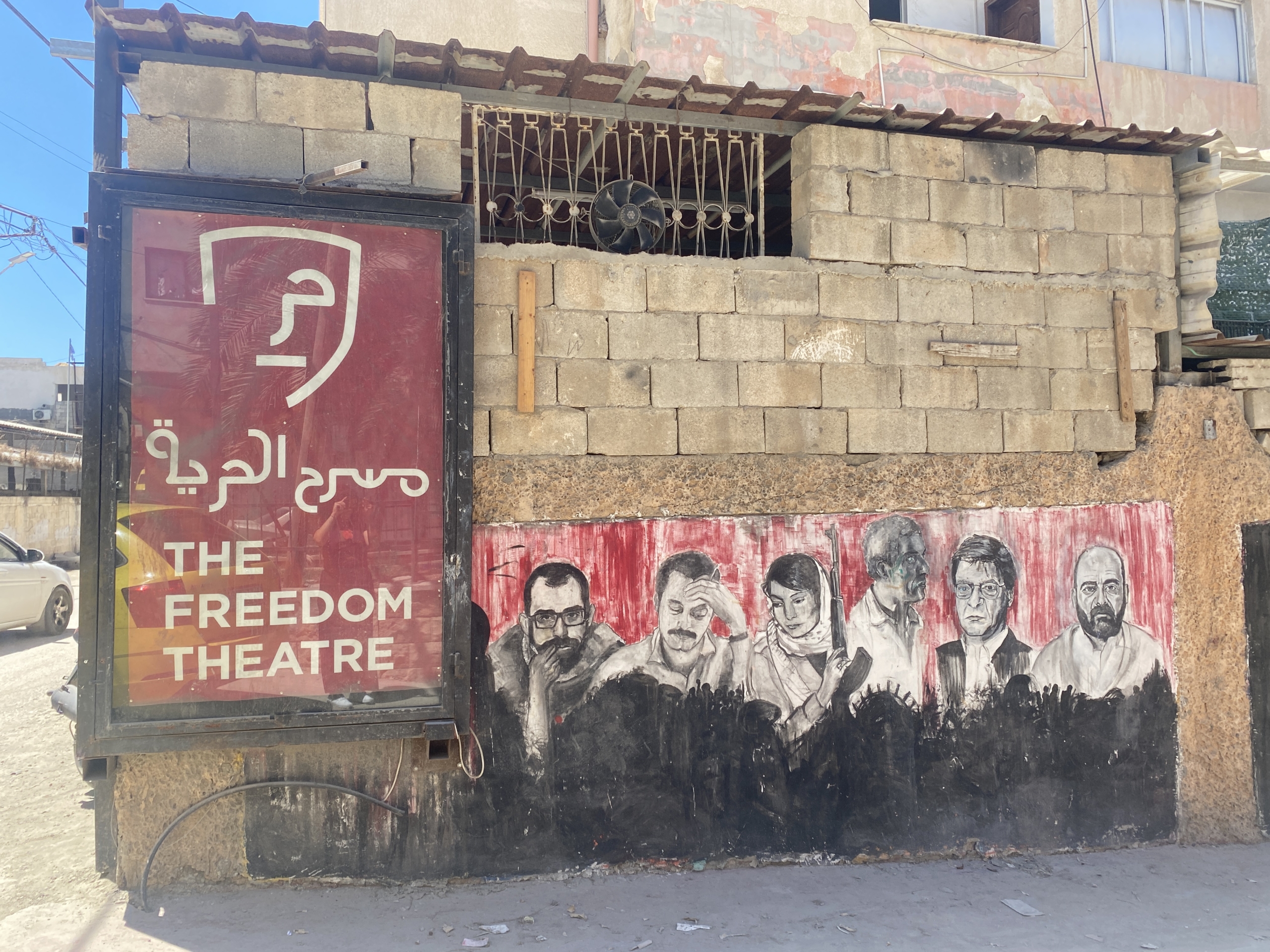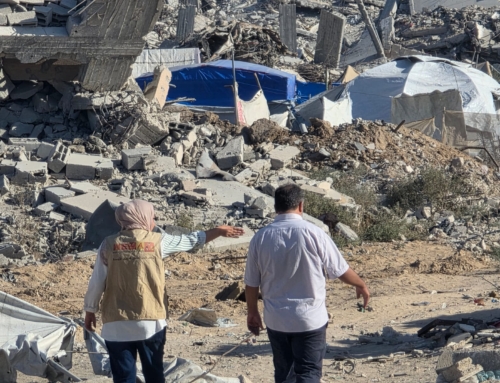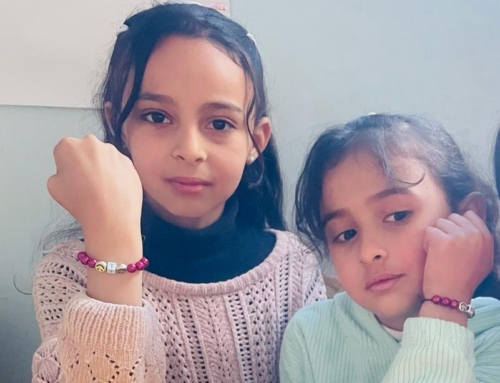Between July 3 and July 4, Israeli occupation forces carried out an extensive and brutal attack on Jenin refugee camp with multiple drone strikes and over 1,000 ground troops. 13 Palestinians, including four children, were killed and over 140 injured. The only health clinic inside the camp was severely damaged and remains closed. The water and sewerage network in the camp, as well as roads, were damaged and in some cases destroyed.

The Freedom Theatre re-opened its doors the minute it was possible. “We work with a few holes in the walls, with burnt walls, we will have our theater festivals, we will finish our “Freedom Academy for Children” and celebrate the children’s graduations. We’re going to have plays where we cry and stand up-comedies where we laugh and we will press on because our job is not done yet.”
“This is the place I feel most comfortable. I can be myself and we have fun!” It was hard to hear this from one of the children at the Freedom Theatre in Jenin as I witnessed the destruction in the camp. Mustafa Sheta, the theater’s director, showed me where Israeli soldiers drilled holes to push their sniper nozzles through and positioned rocket launchers that were used to destroy lives, streets, homes, and also burnt the theater itself.
When we heard that the theater was targeted in July’s attack, our hearts dropped. We saw pictures emerge of the street destroyed and fires coming from the theater. We were terrified that we were going to lose the Freedom Theatre, but the theater team and the children of Jenin refugee camp persevered and continued their vital work despite the physical and psychological damage.
I was lucky to meet a small group of children on my visit to the theater. I joined one of the mothers in watching the children practice their parts. But the kids in the theater program are not just actors, they are part of the whole production process. They learn how to act, dance, express themselves, write scripts, work with audio/visual effects and even build a set. All of this boosts the children’s self-confidence, something their parents have clearly noticed.
The director of the children & youth program, Zeina Odeh, explains “Growing up we had no spaces, no room in the camp for playing and fun, for self-exploration, for creativity. And it took a lot of us to create and maintain such a space. We focus on making the theater a safe space for children so they are able to, at the very least, discover who they are and express it in whichever way is more comfortable to them.”
One of the theater’s principles is “creating art for peace and equality.” They believe in using art as a form of cultural resistance and a tool for positive cultural change. These words might sound hollow to some people around the world, but not here, not for the workers and children of the Freedom Theatre. We live in a world that continues to dehumanize Palestinian children, Palestinian men, and Palestinian women, and yet one visit to the Freedom Theatre will prove to you that these attempts will always fail. That words like peace and equality are not empty words, but principles that people here would sacrifice their lives for. The Freedom Theatre re-opened its doors the minute it was possible. As Mustafa declared “our doors will not close until our job is done. We work with a few holes in the walls, with burnt walls, we will have our theater festivals, we will finish our “Freedom Academy for Children” and celebrate the children’s graduations. We’re going to have plays where we cry and stand up-comedies where we laugh and we will press on – because our job is not done yet.”





